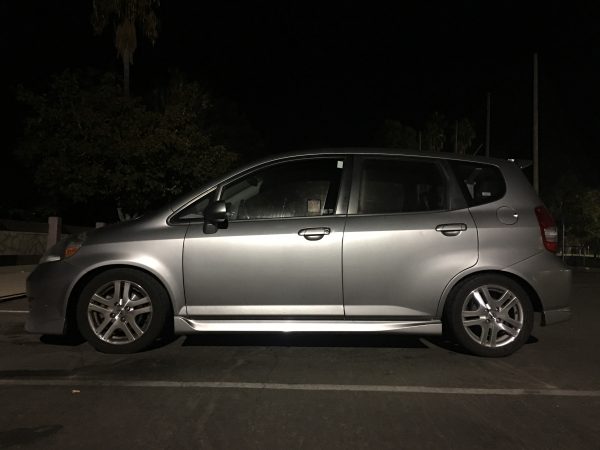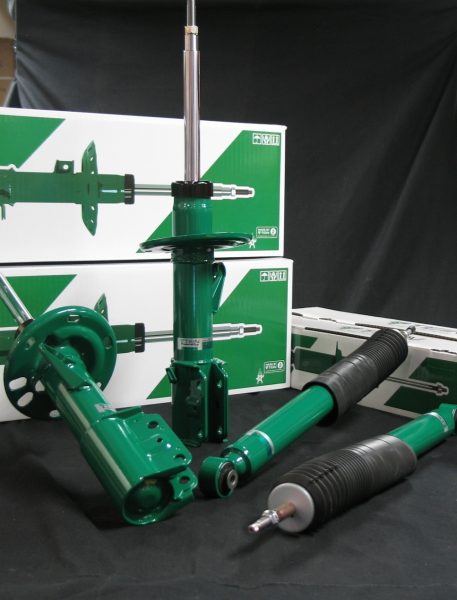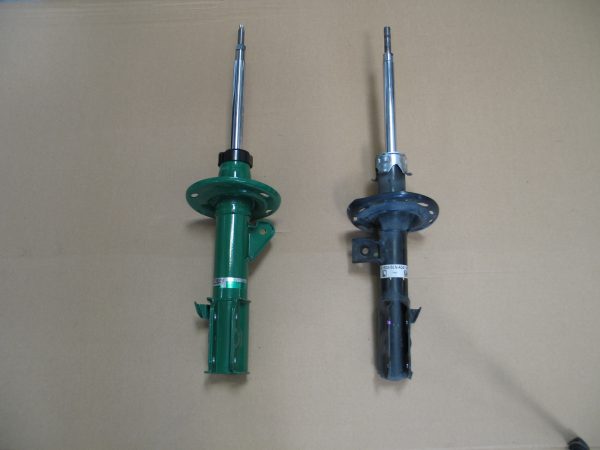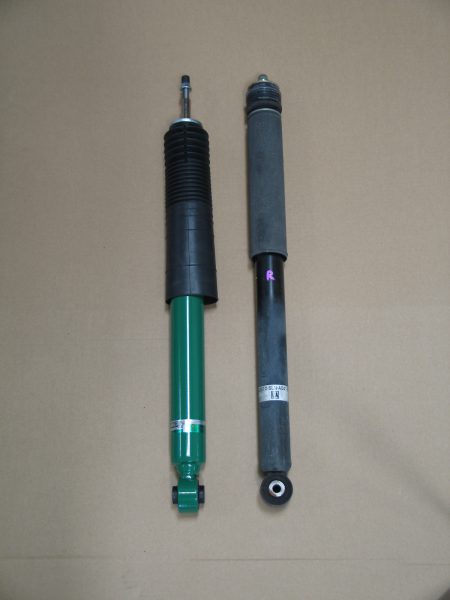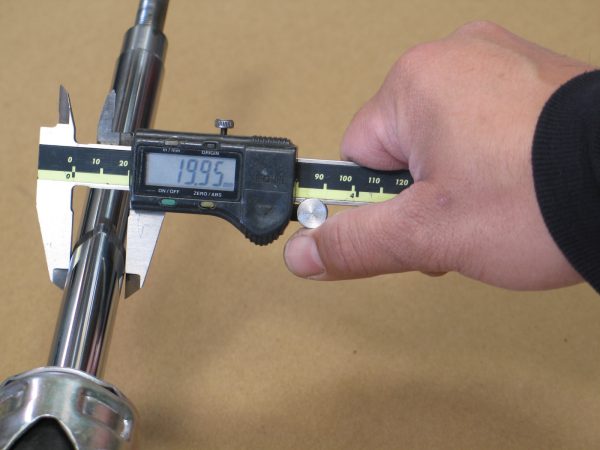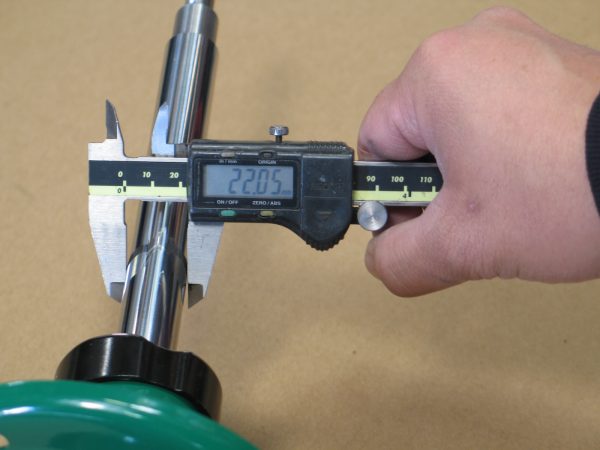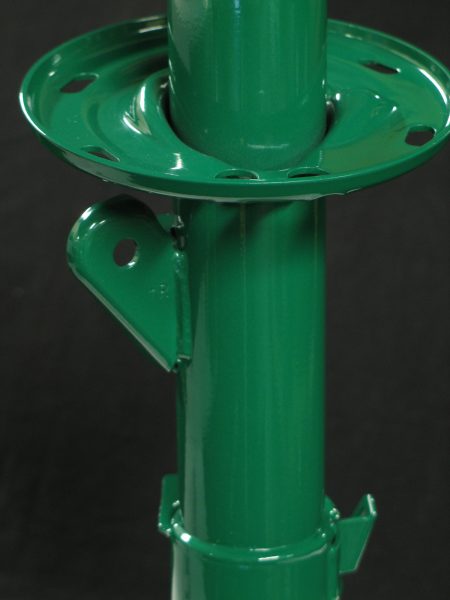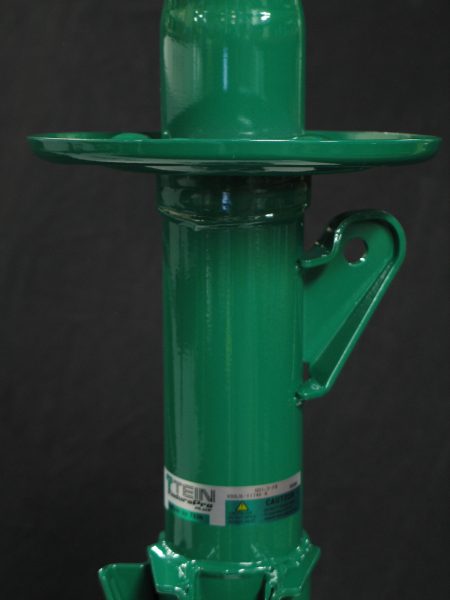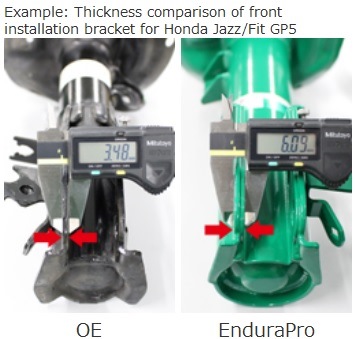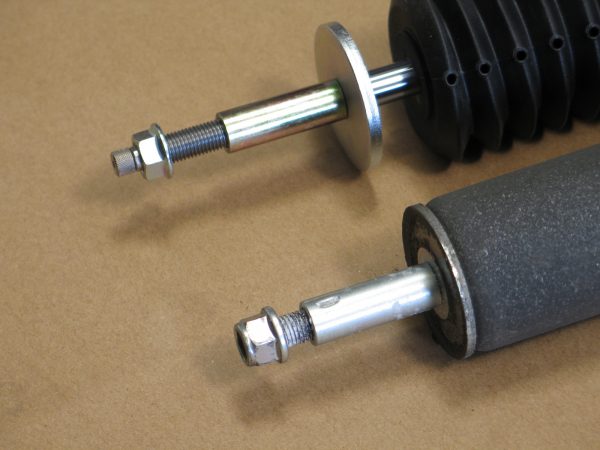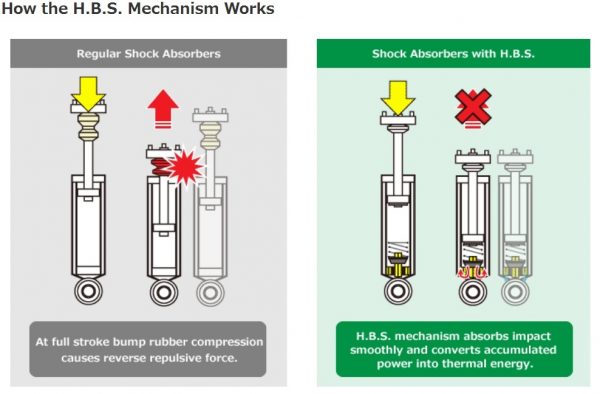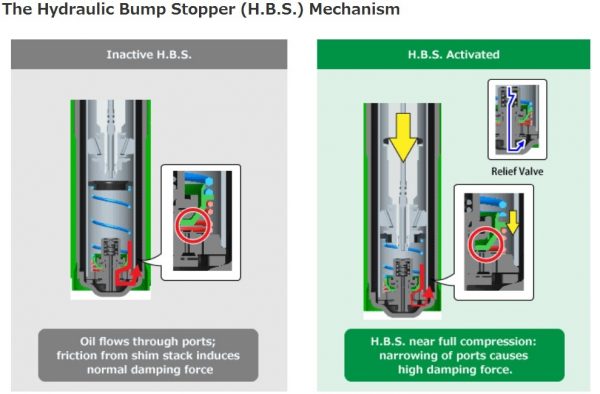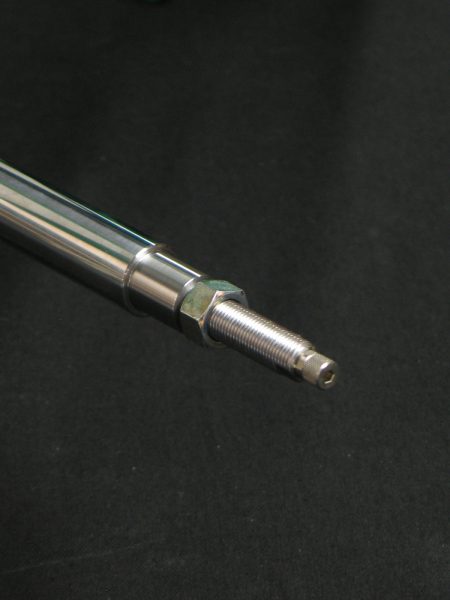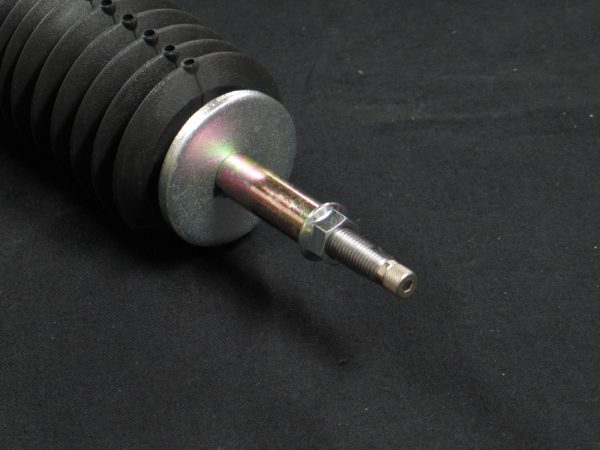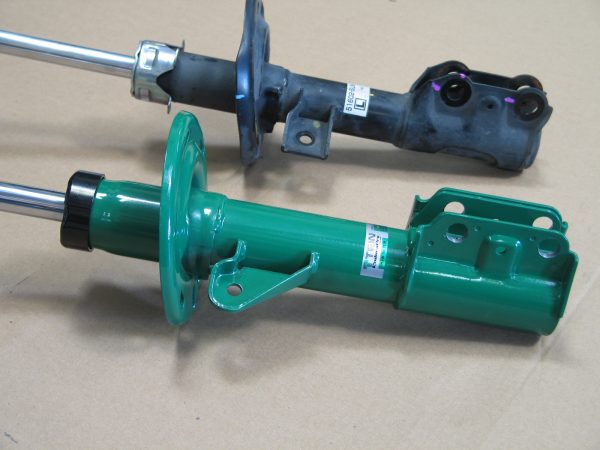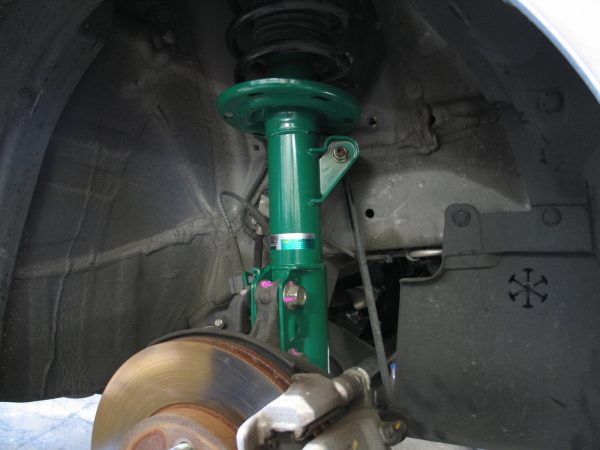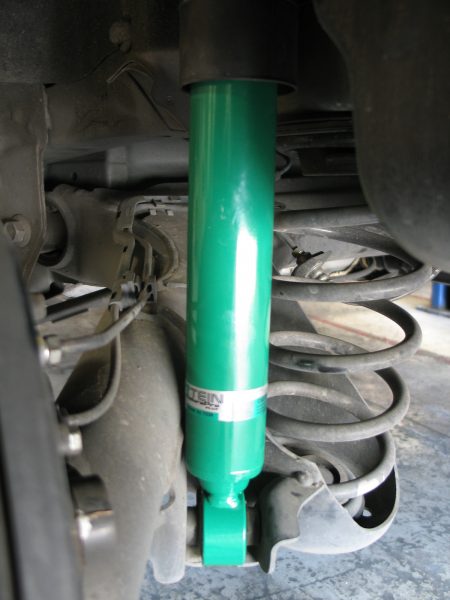I’m lucky enough to be one of the first in the U.S. to put our new ENDURAPRO shock absorbers to use in the U.S. My 2008 Honda Fit was fitted with the ENDURAPRO PLUS (16-click damping adjustable) shocks and struts, which I eventually added our S.TECH lowering springs, around March 2018. I figured it’s time to visually inspect these shocks and see how they’ve held up.
As previously mentioned, this car is typically my daily commuter for work. I average about 14,000 miles in driving a year. While I technically have just over 21,000 miles on these ENDURAPRO PLUS shocks, the other miles I drive for the year has been on my truck. Still, I think over 21k of miles on our ENDURAPRO PLUS shocks is a pretty good age to finally give them a look-see. Mind you, the average shock absorber lifespan is typically 36,000 miles in the U.S. Not too sure how that average came to be. We see shock absorbers last much longer than that. Quite honestly, I should have inspected these shocks a long time ago (a reminder to all to inspect their cars)!
Prior to giving you a run-down of the inspection, I will say that overall the shocks still feel great! Over time, I’ve readjusted the damping click settings simply to find that “sweet spot” in comfort. After all, installing lowering springs will alter the ride quality. Currently I have the fronts and rears set to 8 clicks from stiff (essentially the middle setting). I had previously had it somewhat softer in front and stiffer in back, as I felt it worked well whenever I had the car fully loaded. I may end up softening the front just a little, once everything is reinstalled.
Speaking of fully loaded, that is probably the most awe inspiring experience that showcases how our shock absorbers perform! It really is! As you probably already know, our ENDURAPRO/ENDURAPRO PLUS line includes internal Hydraulic Bump Stoppers, which helps alleviate that ever-so-fun suspension oscillation whenever the car is at maximum capacity.
Again, since it’s my daily commuter, typically there isn’t much extra weight in the car, other than my kids’ seats and some kids junk in the back seats. With lowering springs that are a bit stiffer than stock, it can feel relatively firm over bumps and gaps in the highway. Overall, our S.TECH springs aren’t terribly stiff.
However, after my bi-weekly trip to Costco, which usually consists of purchasing several cases of bottled water, my kids’ diapers and formula, and a bunch of other necessities you have no choice but to purchase in bulk, the trunk gets heavily loaded, and you can both see and feel that added weight. Then add my sons, when i have to pick them up at their Nana’s house. It’s basically like I’m loaded for a long-distance road trip.
This is where our Hydraulic Bump Stopper really comes in to play. Our Southern California highways are anything but smooth, and there are plenty of large gaps, expansion joints, dips, pavement cracks/potholes, ramp-like bumps over overpasses, etc. It’s a great way to put suspension to work, and at highway speeds, this provides us with a horrific ride, and one that puts our vehicles through pure torture. Did I mention that I also have to listen to “Elmo’s Song” on repeat whenever the kids are in the car???
But seriously, over this type of highway terrain, TEIN’s Hydraulic Bump Stopper really does its part in helping absorb these high-speed impacts, preventing the polyurethane bump stop from doing that work and helping the shock absorbers rebound nice and smoothly. Honestly, it has to be one of the more rewarding parts of my commute. Now I can understand what trophy trucks must feel like over big jumps,,,,,, just at a much smaller scale. Hahahaha!
Anyway, on to the inspection:
One thing I noticed was the front strut mounts were making a bit of noise, especially when steering at slow speed. I initially thought it was the bearing making the noise. But, for all I know it could have been a problem with the struts. This just confirms it was indeed the upper mount. However, as mentioned during the initial installation of these ENDURAPRO Plus shock absorbers, the front mounts probably contributed to a slightly lower ride height than target, due to the mostly rubber mount taking a set after 80,000 miles of use. Now at 101,000 miles, it is time to change these components out to fresh new factory style mounts.
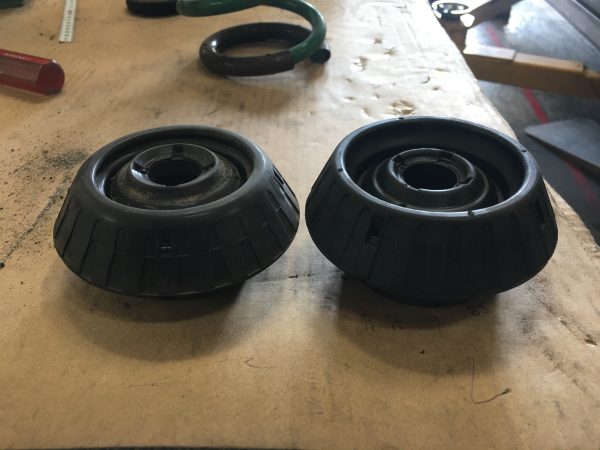
For the rears, the only thing I noticed was a hole being worn into one section of the dust boot. Looks to have made contact with the tire. Not a big deal, and replacement dust boots are readily available.
I also checked gas pressure while the shocks were off the car, and all of them seemed fine. By checking I mean I fully compressed each damper by hand and checked the rebound, as well as tried different damping settings during the same procedure. I will say the damping click adjusters were slightly stiff up front. However, that could be due to not using the included ADD Caps to cover them (this keeps dust out of the system). A simple spray of WD-40 or similar type lubricant will displace any dirt or corrosion in between the click knob and its base. Also, any exposed thread on the piston shafts for the front dampers accumulated some surface rust. A wire brush cleaning and some WD-40 helps clean that up. But since I removed the struts from the original upper mounts, the threads got a decent clean up simply from the removal process.
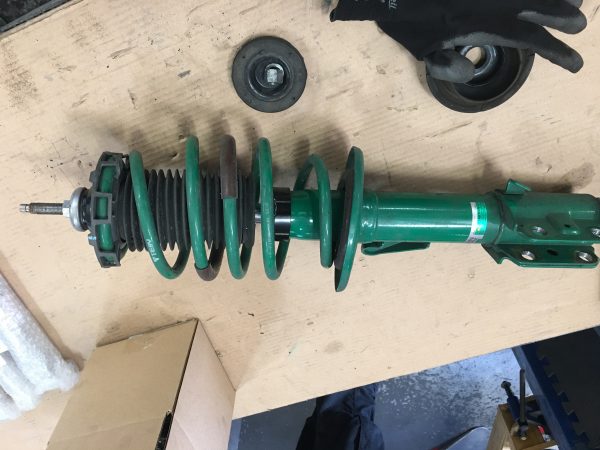
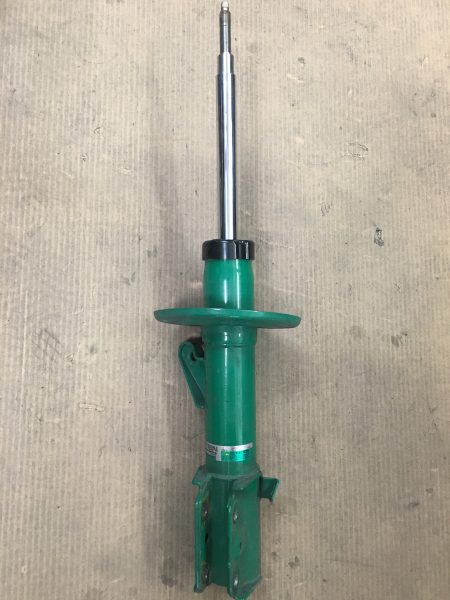
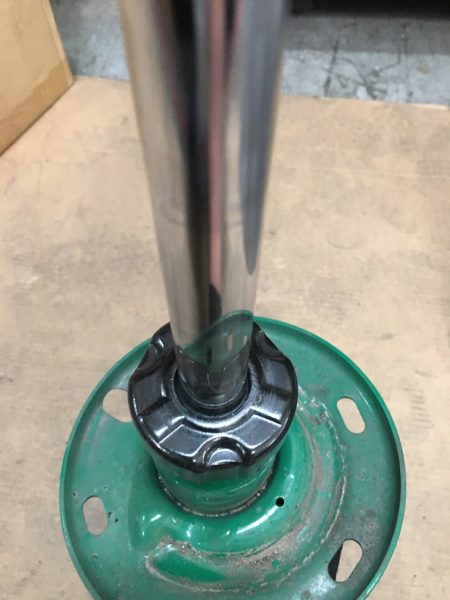
Good thing I inspected the struts! There was some dirt I had to clean up around the dust seal.
While I’ve had the ENDURAPRO shock absorbers off, I checked bushings in the control arms, ball joints, sway bar end links, and tie rod ends just to make sure of their condition, which fortunately they are. I’m sure at some point I’ll change out the front lower arms (bushings by themselves are not readily available). For the rear twist bar, it’s hard to source just the rear bushing, so I’m going to keep searching for a solution.
I did have the tires changed at around the 3,000 mile mark on these shock absorbers. I wanted to try something a bit more sport oriented, but not very expensive. Also, my “tuning philosophy” (if you will) for starting to modify a car is usually in the order of- decent tires, sport (not race) brake pads/shoes, and some decent suspension (as in shock absorbers and possibly springs), especially if there is a damping adjustable option. This before ever considering more power. With ENDURAPRO Plus shocks and S.TECH lowering springs and some Stoptech Sport pads and plain rotors installed, I needed decent tires. So, I contacted the guys at GT Radial to order a set of their Champiro SX2 Summer tires. I’ve followed the 86 Cup group and saw that these tires offer very decent performance and very good wear resistance, and I wanted to try something other than all-season tires that this car has used over the years. I opted for a size slightly smaller in diameter than stock just to see if there was any gain in performance.
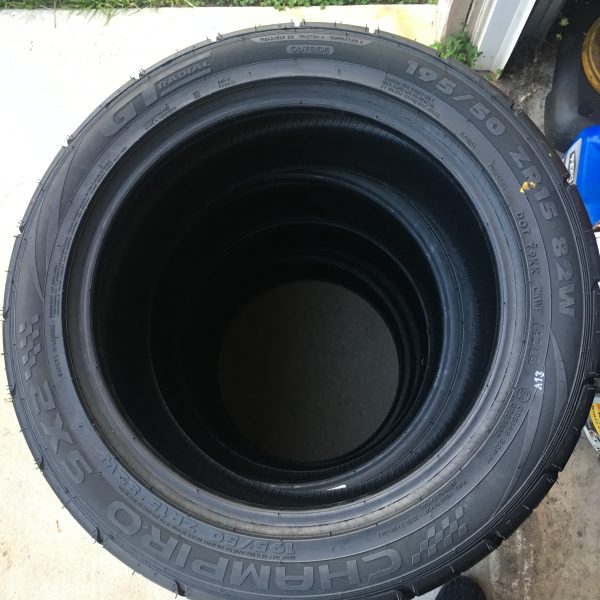
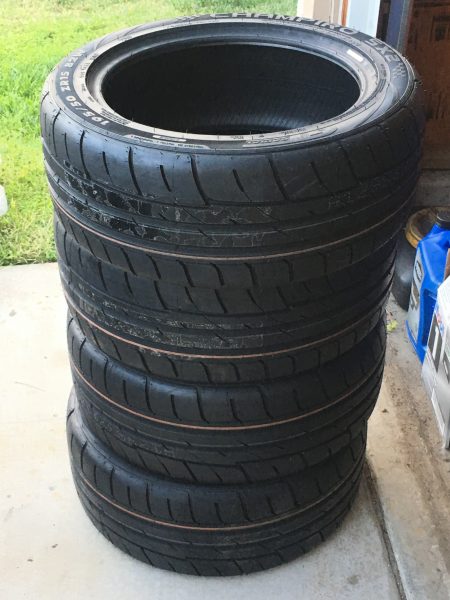
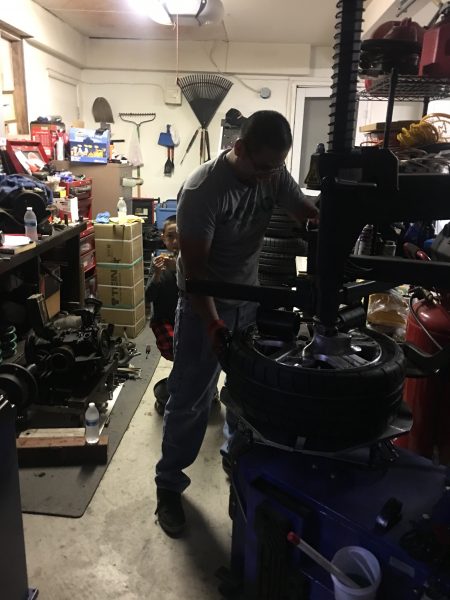
I will say that these SX2 tires still provided very good comfort. Being a daily commuter, this car only gets an occasional spirited drive. For me, that comes with the excitement of driving through Angeles Crest, since it’s kind of in my “back yard”. Interestingly enough, I found that these tires at 31psi cold, and a 13-click front shock setting (soft) and 6-click rear shock setting (somewhat stiff) had very good and predictable feel. I could very lightly get the back end to rotate with a touch of left-foot braking, and the feeling was pretty consistent throughout my drive through the hwy. The Fit is a very front-heavy car, so it takes a little coaxing to get the car to turn in, since the car understeers easily. One thing I could appreciate from these tires is the wear resistance. Rated as a 200 treadwear, these tires held up better than some 360 treadwear tires I had on previously (which actually only lasted about 13,000 miles before I changed them out to these SX2’s). Dunno what the deal is with that, but those are my figures.
Mind you, these aren’t all-season tires, so I take it a little easier during rainy days. However, wet weather driving is actually quite nice on this setup. Not that I was expecting to hydroplane on a summer tire on wet pavement, it actually handled heavy rain and puddles very well.
While this is sounding like a tire review, what I’m getting at is that these small changes to this daily driven econobox (TEIN S.TECH Springs, ENDURAPRO Plus Shock Absorbers, and GT Radial SX2 tires) have already made this car more enjoyable for my drive. Does it make me miss having a much more sporty car? Absolutely. But, gotta work with what I got. I think most importantly is the value of all these parts as a whole- Not a lot of money spent (granted, I got the shocks for free for testing on my car) to “upgrade” the car. So, for most of you guys looking to make your car a little bit faster and more fun to drive, this should be something to think about.
By the way, the slightly smaller diameter tires I chose actually helped improve a few things such as MPG (when I really take it easy on driving) and acceleration (most notably in higher gears). I was expecting MPG to be a bit worse. However, it has affected actual speedometer readings a tad, but the factory speedometer reads ~1 MPH lower than actual.
All in all, I’d say I’m more than pleased with the car as it currently sits. Not a ton of money invested in getting some performance out of it. Decent suspension, very good tires, and sportier brake pads up front, and I’m a happy camper!
